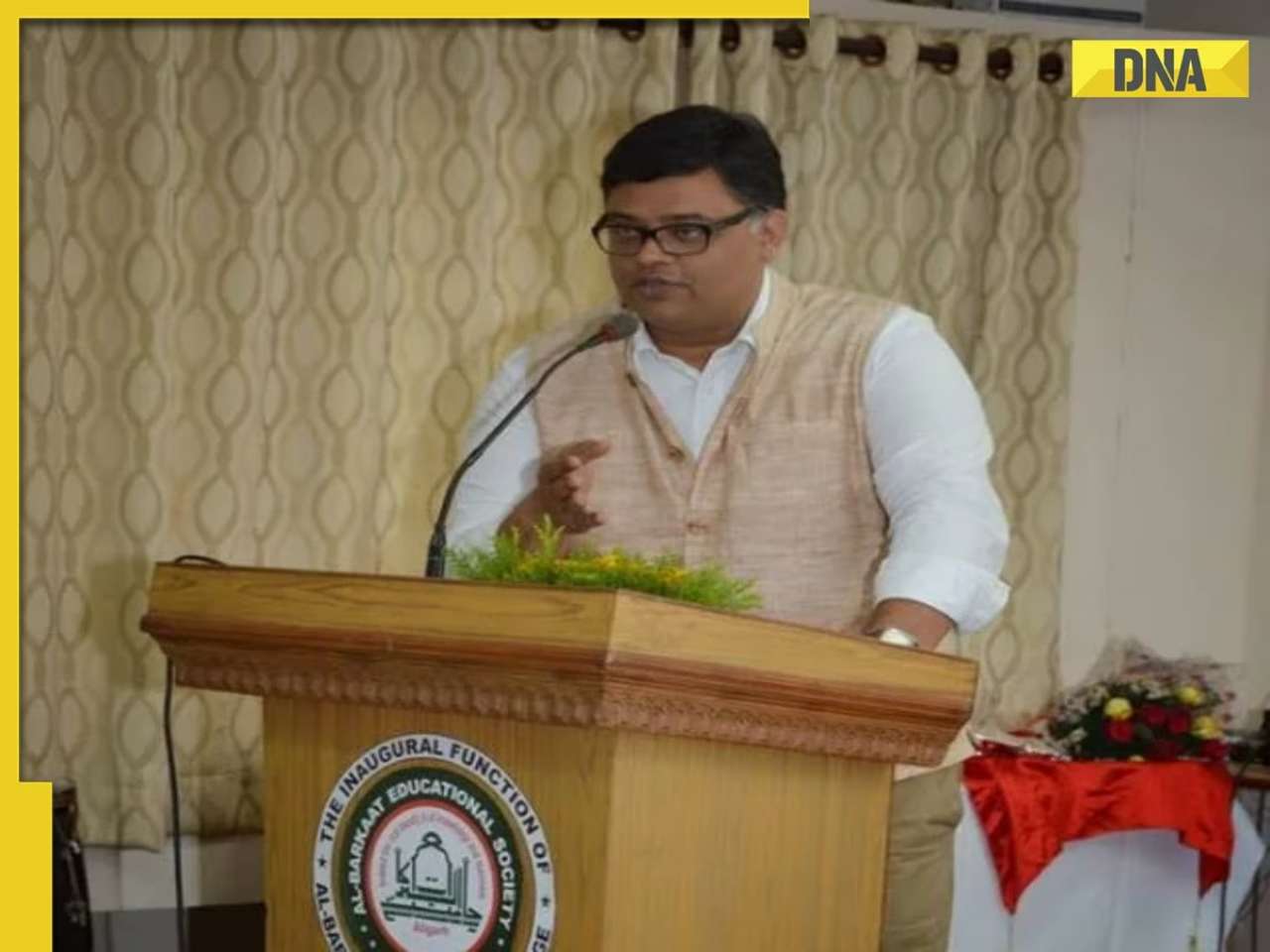Only married women aged between 25 and 35 years will be allowed to become surrogate mothers.
BJP leader Devendra Phadnavis has moved a private member’s bill seeking laws to regulate surrogate motherhood in the state. The bill, called the Assisted Reproductive Technology (Regulation) Bill, was presented on Saturday and may be taken up for discussion on Tuesday.
Seeking to prescribe laws for surrogacy, Phadnavis’ bill stipulates that only married women between the age of 25 and 35 years should be allowed to become surrogate mothers. Furthermore, she must get her husband’s consent to become a surrogate mother and cannot have more than five children, including her own (that is, if she has her own two children, she can at best bear three surrogate children). The surrogate mother will be bound by law not to engage in activities that might harm the foetus. A woman who is a surrogate mother should register herself at an Assisted Reproductive Technology clinic, which should be set up to help surrogate mothers.
The couple who commission a surrogate mother must bear all the medical and related expenses, and the child’s birth certificate should be in the name of the commissioning couple. If the couple is from abroad, a local guardian should be employed, and the couple’s home country embassy must give a certificate stating that surrogacy is acceptable in the home country.
Phadnavis said that a national-level bill is needed to regulate surrogacy across the country, but since such a bill has not been forthcoming, he would like Maharashtra to take the lead. “I know a lot of people think that Gujarat has the maximum cases of surrogacy, but actually Maharashtra has more cases,” he said, adding, “There are even surrogacy agents who swindle women, and several websites inviting women to become surrogate mothers. Thus, there is an urgent need to bring in some laws to regulate the phenomenon.”
While private member’s bills are rarely taken up for discussion unless the house members agree to it, there is a chance that Phadnavis’ bill may come up for discussion.
![submenu-img]() Anil Kapoor, Aditya Roy Kapur's The Night Manager becomes only entry from India to secure nomination at Emmy Awards 2024
Anil Kapoor, Aditya Roy Kapur's The Night Manager becomes only entry from India to secure nomination at Emmy Awards 2024![submenu-img]() Land-for-jobs case: President Murmu authorises prosecution of Lalu Prasad Yadav, CBI submits...
Land-for-jobs case: President Murmu authorises prosecution of Lalu Prasad Yadav, CBI submits...![submenu-img]() This billionaire, once world’s richest man, witnesses drop in wealth due to...; not Mukesh Ambani, Adani
This billionaire, once world’s richest man, witnesses drop in wealth due to...; not Mukesh Ambani, Adani![submenu-img]() Ranbir Kapoor's sister, Riddhima's 'maybe it's a house help' remark leaves netizens furious: 'Uneducated rich brats'
Ranbir Kapoor's sister, Riddhima's 'maybe it's a house help' remark leaves netizens furious: 'Uneducated rich brats'![submenu-img]() Mumbai man orders iPhone 16 online after standing in queue for hours, then..
Mumbai man orders iPhone 16 online after standing in queue for hours, then..![submenu-img]() Delhi CM Atishi Oath Live: दिल्ली की नई CM के रूप में आतिशी ने ली शपथ, केजरीवाल के पैर छूकर लिया आशीर्वाद
Delhi CM Atishi Oath Live: दिल्ली की नई CM के रूप में आतिशी ने ली शपथ, केजरीवाल के पैर छूकर लिया आशीर्वाद![submenu-img]() कौन हैं Air Marshal Amarpreet Singh, जो बनेंगे भारतीय वायुसेना के नए चीफ? फाइटर जेट्स की टेस्टिंग और उड़ाने में हैं माहिर
कौन हैं Air Marshal Amarpreet Singh, जो बनेंगे भारतीय वायुसेना के नए चीफ? फाइटर जेट्स की टेस्टिंग और उड़ाने में हैं माहिर![submenu-img]() Noida Viral Video: 'जाको राखें साइयां, मार सके ना कोए' स्कूटी में टक्कर लगते ही उछलकर एलिवेटिड रोड से गिरी लड़की, ऐसे बची जान
Noida Viral Video: 'जाको राखें साइयां, मार सके ना कोए' स्कूटी में टक्कर लगते ही उछलकर एलिवेटिड रोड से गिरी लड़की, ऐसे बची जान![submenu-img]() कौन है जूही प्रकाश, आगरा की महिला सपा नेता पति की धुनाई करने के आरोप में फंसी, अब हुई FIR दर्ज
कौन है जूही प्रकाश, आगरा की महिला सपा नेता पति की धुनाई करने के आरोप में फंसी, अब हुई FIR दर्ज![submenu-img]() मेक्सिको के ड्रग्स पैडलर्स में छिड़ी गैंगवार, अब तक 100 लोगों की मौत, 5 पॉइंट में पढ़ें पूरी बात
मेक्सिको के ड्रग्स पैडलर्स में छिड़ी गैंगवार, अब तक 100 लोगों की मौत, 5 पॉइंट में पढ़ें पूरी बात![submenu-img]() Ford to return to India after 2 years with reopening of....
Ford to return to India after 2 years with reopening of....![submenu-img]() Maruti Suzuki launches new Swift CNG, check price, mileage, other features
Maruti Suzuki launches new Swift CNG, check price, mileage, other features![submenu-img]() ‘30 LPA, 3BHK, no in-laws’: Woman earning Rs 1.32 lakh salary lists demands for future husband, netizens say...
‘30 LPA, 3BHK, no in-laws’: Woman earning Rs 1.32 lakh salary lists demands for future husband, netizens say...![submenu-img]() In a big EV push, Centre launches Rs 10900 crore PM E-Drive scheme to replace…
In a big EV push, Centre launches Rs 10900 crore PM E-Drive scheme to replace…![submenu-img]() World’s longest car has helipad, swimming pool, mini-golf course, can seat over…; it cost…
World’s longest car has helipad, swimming pool, mini-golf course, can seat over…; it cost…![submenu-img]() Meet man who passed JEE Advanced with AIR 1, completed B.Tech from IIT Bombay, is now pursuing…
Meet man who passed JEE Advanced with AIR 1, completed B.Tech from IIT Bombay, is now pursuing…![submenu-img]() Meet man, whose father's death encouraged him to quit IAS job, create multi-crore company, he is...
Meet man, whose father's death encouraged him to quit IAS job, create multi-crore company, he is...![submenu-img]() Meet woman, who scored 97% in class 12, secured 705 out of 720 marks in NEET exam, her AIR is...
Meet woman, who scored 97% in class 12, secured 705 out of 720 marks in NEET exam, her AIR is...![submenu-img]() NEET UG Counselling 2024: Round 2 seat allotment result declared at mcc.nic.in, check direct link here
NEET UG Counselling 2024: Round 2 seat allotment result declared at mcc.nic.in, check direct link here![submenu-img]() Meet IPS officer who has resigned after serving for 18 yrs due to...
Meet IPS officer who has resigned after serving for 18 yrs due to...![submenu-img]() Congress President Kharge Slams & Opposes 'One Nation, One Election' Proposal, Calls It Impractical
Congress President Kharge Slams & Opposes 'One Nation, One Election' Proposal, Calls It Impractical![submenu-img]() Why 'One Nation One Election' Is important? Ashwini Vaishnaw Explains After It Gets Cabinet Approval
Why 'One Nation One Election' Is important? Ashwini Vaishnaw Explains After It Gets Cabinet Approval![submenu-img]() Jammu Kashmir Assembly Election 2024 Phase 1 Highlights: What Happened In First phase In J&K Polls?
Jammu Kashmir Assembly Election 2024 Phase 1 Highlights: What Happened In First phase In J&K Polls?![submenu-img]() One Nation One Election: Centre Clears Proposal, Bill To Be Introduced In Winter Session | Modi 3.0
One Nation One Election: Centre Clears Proposal, Bill To Be Introduced In Winter Session | Modi 3.0![submenu-img]() Haryana Elections 2024: Is BJP Set To Lose In Haryana? Anti-Incumbency And Other Factors Analysed
Haryana Elections 2024: Is BJP Set To Lose In Haryana? Anti-Incumbency And Other Factors Analysed![submenu-img]() This billionaire, once world’s richest man, witnesses drop in wealth due to...; not Mukesh Ambani, Adani
This billionaire, once world’s richest man, witnesses drop in wealth due to...; not Mukesh Ambani, Adani![submenu-img]() Meet man who started as intern at Nike, is now its CEO after 32 years, his salary is Rs...
Meet man who started as intern at Nike, is now its CEO after 32 years, his salary is Rs...![submenu-img]() Meet man who received gift worth Rs 15000000000 from Mukesh Ambani, is referred to as his 'right hand', he is...
Meet man who received gift worth Rs 15000000000 from Mukesh Ambani, is referred to as his 'right hand', he is...![submenu-img]() Elon Musk, Oracle CEO once begged this company to take their money, know what had happened
Elon Musk, Oracle CEO once begged this company to take their money, know what had happened![submenu-img]() 'Office was filled with…': Ashneer Grover on why he left EY in one day despite having package of Rs…
'Office was filled with…': Ashneer Grover on why he left EY in one day despite having package of Rs…![submenu-img]() Luxurious homes to swanky cars: Most expensive things owned by Virat Kohli
Luxurious homes to swanky cars: Most expensive things owned by Virat Kohli![submenu-img]() Akshay Kumar's biggest flop film was remake of a Malayalam blockbuster, still broke Guinness World Record set by...
Akshay Kumar's biggest flop film was remake of a Malayalam blockbuster, still broke Guinness World Record set by...![submenu-img]() Exploring Uttarakhand: 6 breathtaking destinations in scenic state
Exploring Uttarakhand: 6 breathtaking destinations in scenic state![submenu-img]() From Puga Valley to Hanle: Must-visit places in Ladakh
From Puga Valley to Hanle: Must-visit places in Ladakh![submenu-img]() Meet Himachal officer who has been transferred without posting, as popular as IAS Tina Dabi on social media, she is...
Meet Himachal officer who has been transferred without posting, as popular as IAS Tina Dabi on social media, she is...![submenu-img]() Land-for-jobs case: President Murmu authorises prosecution of Lalu Prasad Yadav, CBI submits...
Land-for-jobs case: President Murmu authorises prosecution of Lalu Prasad Yadav, CBI submits...![submenu-img]() Tirupati Laddoo Row: Jagan Reddy says he will write to PM Modi, CJI to take action against...
Tirupati Laddoo Row: Jagan Reddy says he will write to PM Modi, CJI to take action against...![submenu-img]() AAP demands government accommodation for outgoing Delhi CM Arvind Kejriwal, says he is...
AAP demands government accommodation for outgoing Delhi CM Arvind Kejriwal, says he is...![submenu-img]() 'Samples highly adulterated, we will...': Tirupati Temple Trust issues first statement on laddoo row
'Samples highly adulterated, we will...': Tirupati Temple Trust issues first statement on laddoo row![submenu-img]() NEET UG 2024: CBI files second-chargesheet against six accused in paper leak case
NEET UG 2024: CBI files second-chargesheet against six accused in paper leak case













































)
)
)
)
)
)
)
)
)
)
)
)
)
)





)
)
)
)
)
)